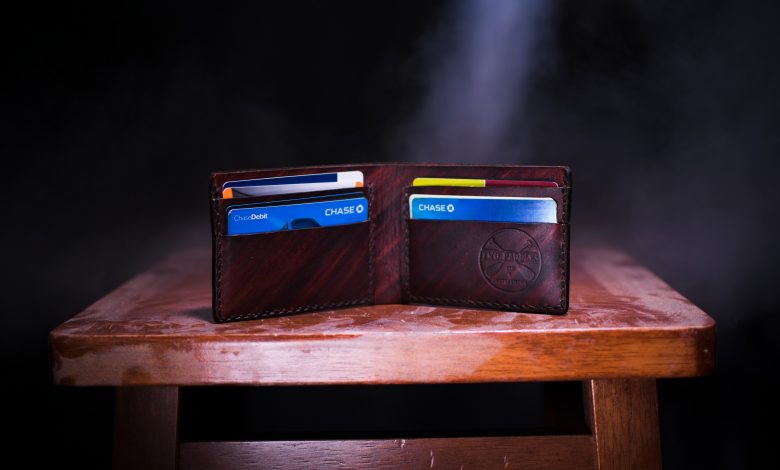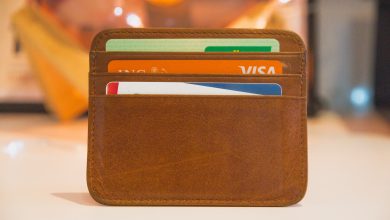How to Be a Conscious Spender with a Debit Card

Balance sheets across the world are showing increasing amounts of personal debts. The debt to GDP ratio has been on the rise ever since World War II. With Japan leading the list with a 235% debt to GDP ratio (reflecting personal debts), other countries on the list include Greece, Italy, Portugal, Belgium, the US, France, the UK, Spain, and Canada.
These powerful countries are reflecting a financial weakness that unfortunately the majority of the world is plagued with: the inability to save and paying off mounting debts.
The world is gradually becoming more and more consumer-centric. There are more job opportunities than before, better access to education and career growth, and overall better-earning potential and hence disposable incomes. However, this is not a problem. The problem creeps in when people can’t put a limit on their spending habits. Thanks to plastic money in the form of credit cards and easy personal loans, people are now spending more than they can afford. This system sounds like what it is: extremely problematic. Consumers need to start taking their spending habits seriously. While saving does not sound very appealing to most, conscious spending, on the other hand, is a term more people are open to considering.
What is Conscious Spending?
Saving is not a word that gets people excited. It makes them think of all the things that they may have to give up on, increasing their stress and causing them to end up spending more. On the other hand, conscious spending has “spending” in the name, but it also talks about spending consciously. Conscious spending does not talk about saving; however, it does talk about spending on things that you truly need.
There is a distinct difference between the terms “need” and “want”. Microeconomics books talk about this difference in great detail. However, for the sake of convenience, let’s just stick to a simple example.
You have an expensive phone, which you need to protect from damage, so you buy a phone cover that ensures 360-degree protection. You are happy with your purchase. You know you needed to make this purchase to ensure your phone’s protection.
Then you come across some incredibly fancy and cool phone covers while you are browsing online shopping portals. You immediately end up ordering a couple of more phone covers because of their awesome design.
In the second case, you purchased out of want. Not a need. Your phone could do without those cute designer phone (somewhat expensive) covers, but it needed the first one. This is a classic case of need vs. want. You might often end up buying something out of habit or novelty value and not because you need it.
Conscious spending helps you gather the money that you are spending on purchases fueled by wants and use it to spend on something that truly matters to you.

Different from Saving
Conscious spending does not ask you to save up money from your income. Instead, it asks you to spot the leaks in your spending habits that are not helping gain the most out of that spend. It asks you to limit wasteful purchase and direct that money towards something that you might value more but are concerned that you might not be able to afford it.
The good news is that conscious spending helps you afford those things that you thought you otherwise could not. You will find more disposable income in your account than before that you can freely spend on things that you care about.
Conscious spending does not have much to do with budgeting or saving (although both of these are NOT outside the purview of conscious spending). It has more to do with the little decisions and self-control that are truly required to build a healthy spending habit.
Why Choose Conscious Spending Over Saving?
Choosing conscious spending comes more easily to people than saving. The ideas of saving and budgeting seem like bondage to most. Even if you are cognizant of the long-term benefits of saving, chances are that you will delay it or stop saving to spend on an impulse purchase itself.
Conscious spending does not put a dampener on your spending habits. Instead, it directs your spending towards better things that truly matter to you in the long term. Small ticket items might seem small when you are making a $2 or $5 purchase, but you might never know when these small amounts add up to a good $300 or more.
Conscious spending helps you ask the questions: “Do I need it?” and “What could I do with this money instead?” These are healthy questions to live to for a ripe and healthy financial future.
How to Become a Conscious Spender
To become a conscious spender, you need to start with a few steps first:
- Track your expenses
- Identify the leaks in your expenses
- Be aware of what you want and what is just novelty
- Ask the right questions (the ones mentioned above)
- Know that it’s okay to set desires as goals
The good thing about the seasoned conscious spender is that they do not splurge on a whim – something that plagues most of humankind in today’s date. They ask the right questions and spend only when they know they need to. Because of this, money is safe in the hands of conscious spenders, in all its forms, paper or plastic. When it comes to plastic money, a debit card is closer to cash form as compared to credit card, as it is there in your checking account. However, unlike a compulsive spender, a conscious spender will be more mindful of what they are spending on and how much even when swiping their debit card.
Conscious spenders have a clear understanding of which kind of payment method to choose to fund what kind of expense. Here’s a look at when a debit card should be preferred over credit card and vice versa.

When to Use a Debit Card
As per a study conducted by LendEDU, an online marketplace offering a variety of financial products, 43% of respondents mentioned that they prefer using debit cards above other methods.
There is a mode of payment that suits the kind of expense or payment the best. It may be a credit card payment, a debit card swipe, or a simple cash transaction. Knowing when to use which can help you become a conscious spender, too. Use a debit card when:
You are trying to avoid debt
Whether you are avoiding getting into debt or are already in debt and want to steer clear of gathering more, a debit card should be your preferred mode of payment. Debit cards are connected to your checking account, and as such, you can only spend to the tune of the maximum amount lying in your checking account. There is no room for overspending, like in the case of credit cards.
The average credit card debt in the US amounts to approximately $6,000. This amount jumps to more than $9,000 for households that carry overdue balances on their credit card. Although debt is not a bad thing, as it helps create and maintain a credit history and credit rating for you, it is something that should be kept in check.
You are making everyday purchases
A debit card makes it easier to pay for your groceries and utility. These spendings are pure necessities, and you need not be worried about running into cash problems when spending on these. It is as good as paying in cash for your everyday needs. It’s just that you do not need to carry the cash around, as the plastic card will do its work fair enough.
You are trying to keep track of your spending
Swiping the card, whether debit or credit, is an easier job, as compared to counting and spending in cash. The pain of counting cash and pennies can work as a deterrent to spending erratically. Although it might seem ridiculous at first, the fact is that people have become hooked to convenience. Once they know of ways that can make their lives easier, they do not want to go back to the traditional ways of doing the same. The same can be said for cash spends. So if you are trying to embrace the convenience of using a debit card while keeping track of what you are spending on, you can use personal finance software that helps you track your spending. These software work better with debit cards than with cash, as with every swipe they auto-populate your expenses and even incomes. This is a great and easy way to track your cash flow from a debit card.
Conscious spenders especially enjoy this feature, as it helps them realize the most important step in their conscious spending process: track your expenses.
When to Use a Credit Card
Credit cards are a powerful payment method if you know how to use them effectively and not go overboard on spending. A credit card in its way instills discipline in people who want to taste the route to conscious spending. Instances when the credit card is your best bet for the preferred mode of payment are when:
You are traveling
Credit cards are the best and most recommended mode of payment when you are traveling. Whether you are booking your flight tickets, booking rooms at the hotel or Airbnb, paying the bill at the restaurant, or shopping at the mall, credit cards are perfect for paying all kinds of expenses when you are traveling.
One of the reasons for this is safety and security. You are not liable for any fraudulent charge on your credit card if it gets lost or stolen. You can easily go ahead and block your card as soon as you know that it has been misplaced or stolen, thus stopping any further fraudulent charge.
The second reason is the better rates you are eligible for in terms of foreign exchange fees. This is more profitable for you than buying the local currency in exchange for dollars locally. The best credit cards available for consumers have no foreign transaction fee at all. Additionally, your credit card might also offer you certain perks when you spend in a foreign country.
Finally, a special tip for everyone who is planning to apply for a travel credit card: if you do choose a travel reward credit card, check to see if they offer travel insurance as well. This would be a great perk of applying for a travel-specific credit card.
You are ensuring its security
As mentioned in the point above, credit cards save you from getting entrapped in fraudulent charges and lose all your money in case your card gets stolen. This makes carrying a credit card around a much safer option. The moment you realize that your card is missing, all you need to do is freeze it, and that’s it.
You like your rewards
Most credit cards offer rewards to users. One of the most popular forms of rewards is the cashback reward. These credit card rewards are great since you get a certain percentage of your money back. This also translates to the reduced marked price of things that you were going to buy anyway, which means unintended savings.
You are spending on work
Whenever you are incurring work expenses, using a credit card is the way to go. Whether you are charging it to your job or your own business, a credit card helps to keep these work expenses separated and sorted. This is especially important when you need to submit an expense report at work and get the amount reimbursed. If you use a debit card in this situation, then the money will be deducted right on the spot. This is not helpful when you are waiting to be reimbursed by the company. So by using a credit card, you are not using your cash to pay for immediate expenses that will be reimbursed later.
Pros and Cons of Debit Card
When you know what kind of plastic money suits you best when you need to spend, you certainly are making a good spending decision. However, despite their convenience factor, conscious spenders should be aware of the pros and cons of debit cards.
Debit cards help you avoid debt by making you spend only the money you have in your checking account. They conveniently limit spending to the amount you have lying around. But that does not mean that you don’t run into the risk of not having any money left in your account. Overdraft protection could be a saving grace, but that in itself is an example of bank credit, which means you incurred a debt to the bank.
Debit cards are also inexpensive, as they do not charge annual fees as a credit card does. However, certain fees apply, which a consumer may not be aware of. If you are using your credit card to withdraw money from a non-affiliate bank ATM, then your withdrawal will attract a fee. Other fees that may apply to some debit cards are maintenance fees and overdraft protection fees.
Debit card swipe fees are smaller amounts for small businesses, thereby you can shop from small merchants at the market price. They usually tend to hike up prices for credit card transactions, as they tend to attract higher fees. This is a good thing for small purchases. But, if you are making a big-ticket purchase, using a debit card means losing the money from your checking account right away. This means you no longer have access to this money should you need it. Therefore, it is always better to make big-budget spends on credit cards and close the payment when the payment is due, rather than spending the money right away.

The reason why conscious spenders can use either type of plastic money efficiently is that they are firm about what to spend on and how much. Choosing between credit or debit cards is more a second step to that purchase decision to see which one fits the bill best. Conscious spenders do not spend thinking it’s okay to max out the credit card or wipe the checking account sparkling clean with a debit card to fund their impulse purchase. For conscious spenders, the matter of using plastic money is based more on convenience rather than need. Therefore, when it comes to the mode of payment, debit cards are just as great for conscious spenders as the credit card is.



